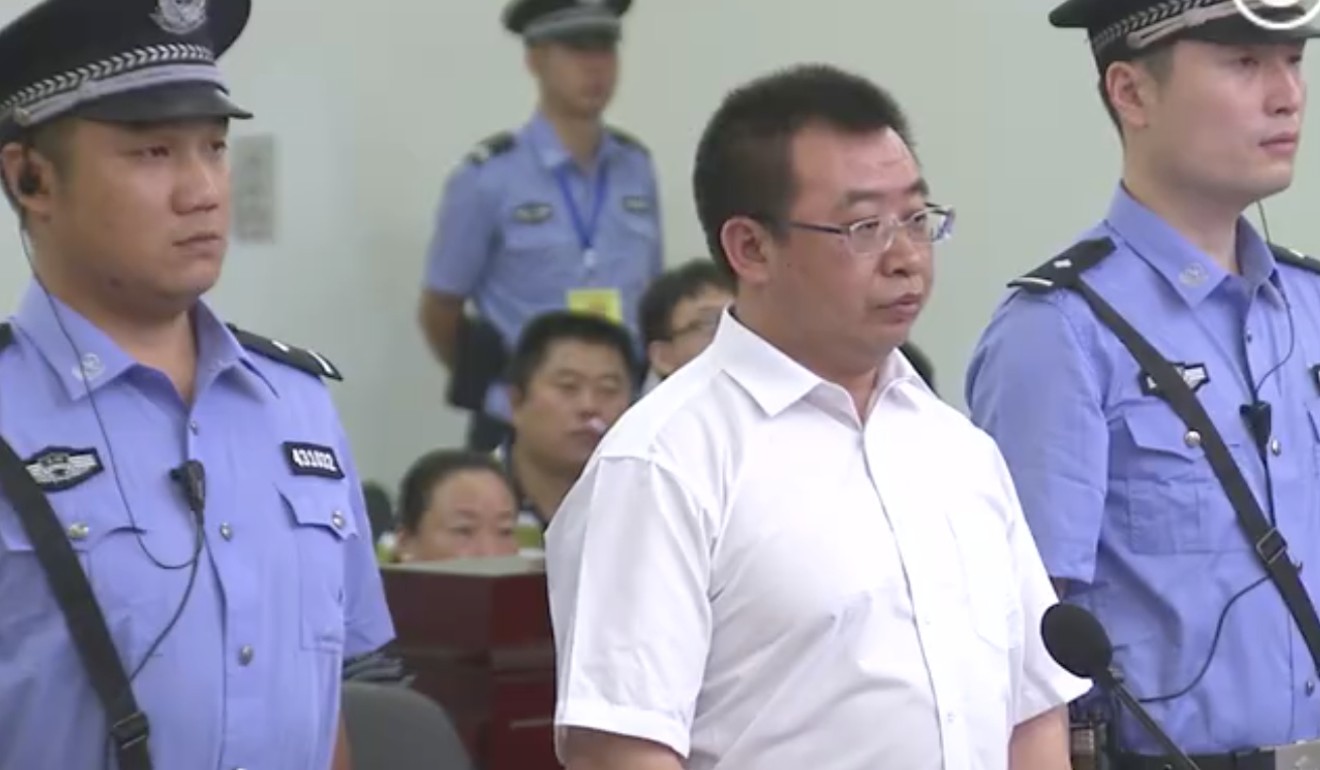
Verdict expected for lawyer and rights activist Jiang Tianyong, wife says
Known for defending high-profile dissidents, he is accused of ‘inciting subversion of state power’
Lawyer and rights activist Jiang Tianyong is expected to be handed a verdict on his subversion charges on Tuesday, his wife says.
Jiang is known for defending high-profile dissidents and practitioners of Falun Gong, the banned spiritual movement, before he was disbarred in 2009.
He disappeared in November 2016 after travelling to Hunan to support fellow rights lawyer Xie Yang. Jiang was later charged with “inciting subversion of state power” and was put on trial in the central province in August.

“The government-appointed lawyer told his father of another court session scheduled for 9.30am on Tuesday,” Jiang’s wife Jin Bianling said by phone from Los Angeles. “He also told Jiang’s sister there would be a verdict … and that Jiang’s father could attend.”
Jin, who along with her daughter has been granted political asylum in the United States, said she would denounce any ruling that suggested her husband was guilty.
“He was arrested trying to help lawyers arrested in the ‘709 crackdown’,” Jin said. “If that counts as inciting subversion, it makes the government a paper tiger.”
The “709 crackdown” saw some 300 rights lawyers, legal assistants and activists from across the country rounded up in a series of operations that began on July 9, 2015. Most of them were released, but some have been jailed on subversion charges, while several are still awaiting a trial or verdicts, according to China Human Rights Lawyers Concern Group.
Jiang was detained last year by police in Hunan after he tried to visit Xie – who was among the lawyers rounded up in 2015 – in custody.
Prosecutors said Jiang had incited a handful of illegal demonstrations and “colluded with overseas subversive forces”. The evidence of this, they said, included his trying to rally support for dissidents using the instant messaging service Telegram and criticism of China’s judicial system during interviews with American media.
“We had no channel to communicate with him after he disappeared – the two lawyers I appointed were not allowed to meet him,” Jin said. “I had no knowledge of who was representing my husband until I saw him in news footage of the trial in August.”
Jin, who has lived with her daughter in the US since 2014, said she hoped to see Jiang again soon.
“I very much hope he can come to the States and be reunited with me and our daughter. We have not seen him for four years,” she said. “The papers for his political asylum have been ready since 2015, but he wouldn’t leave China because he wanted to help other lawyers.”

